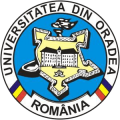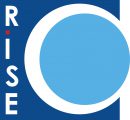General presentation
The regional and cohesion policy of the European Union guarantees a smart, sustainable and inclusive growth and at the same time promotes the harmonious development of the Union and its regions by reducing economic, social and territorial disparities. The Europe 2020 Strategy and the recent crises (economic, security, social crises), as well as the socio-economic and geopolitical realities at the European Union (EU) frontiers (internal or external) create a complex context for the achievement of these objectives in the border regions. Identified as peripheral areas, they often project a negative image of inaccessible regions, inadequate for services, politically and economically marginalized, generating unemployment, especially among young people, and labor migration, especially of the highly skilled. Cross-border cooperation mechanisms have boosted the development of such peripheral areas, but the historical, social and political realities existing in Central and Eastern Europe before the fall of the Iron Curtain hampers the use of these instruments and the implementation of European policies to reduce inter-regional disparities. In these circumstances, the demand for specialists to find solutions to the need to transform the border regions into a dynamic zone of innovation, rapid growth and responsible self-governance is steadily increasing.
Objectives
Our proposal aims at contributing to harmonious development of European regions by stimulate teaching, research and reflection activities in two convergent axes:
- approaching regional development from the point of view of border regions growth, in the context of Central and Eastern Europe realities;
- strengthening the youth capacity to adapt at the nowadays labour market and to contribute to regional growth.
The main activities of the project will be 3 courses for MA students, a summer school, an international conference organised with key partner European universities, encompassing academics, but also students, civil society, politicians, employers, local authorities. The emergent knowledge will be disseminated through deliverables: a handbook in Romanian and English, for the use of students, a conference volume comprising the most relevant papers presented in the event not only for the participants involved in but also disseminate to: public institutions from social domain of interest, college teachers, public and academic national and international libraries, documentation centres etc. So, we plan: theoretical courses; interactive seminars; case studies; simulations; a summer school where practitioners, specialists in regional development, representatives of local and national authorities and European politician will lecture and interact with students; will be provided didactic materials; an international conference, as an academic space where scholars from the regional development and educational area will meat, exchange ideas and publish their research findings on this regard.
Objectives and the main outputs and outcomes
Our proposal aims at contributing to harmonious development of European regions by stimulate teaching, research and reflection activities in two convergent axes:
- approaching regional development from the point of view of border regions growth, in the context of Central and Eastern Europe realities;
- strengthening the youth capacity to adapt at the nowadays labour market and to contribute to regional growth.
We plan: theoretical courses; interactive seminars; case studies; simulations; a summer school where practitioners, specialists in regional development, representatives of local and national authorities and European politician will lecture and interact with students; will be provided didactic materials; an international conference, as an academic space where scholars from the regional development and educational area will meat, exchange ideas and publish their research findings on this regard.
Outputs:
- enriching the university curricula with three new courses on EU related themes;
- developing research in a niche of EU studies;
- facilitating dialogue between the academics, students and main local, regional, national or European actors (decision-makers, employers, civil society, professionals, business area);
- raising awareness of the EU regional development policy among students, but also among people involved in institutions and public authorities and equipping students with adequate skills;
Outcomes:
- enriching students’ knowledge on the EU and improving their civic abilities;
- growing the interest for understanding the EU;
- increasing the expertise of the University of Oradea in European studies;
- ensuring excellence in teaching and research activities;
Beneficiaries
- direct – students, the academic community, University of Oradea;
- indirect – local communities and the representatives of institutions, groups within the civil society, teaching staff, professionals etc., from Romania and other EU and non-EU countries.





